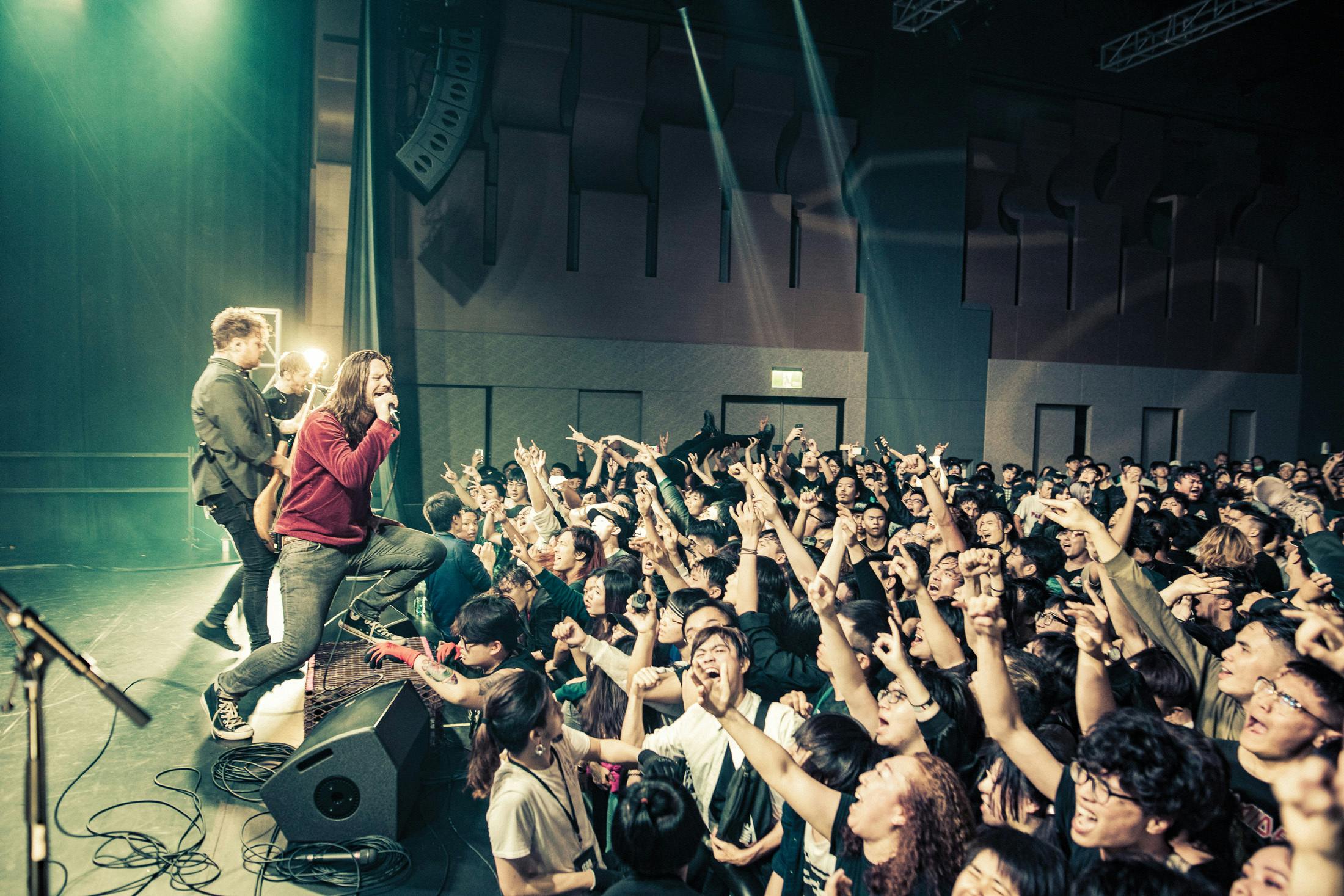How important is it to keep these grassroot local scenes going?
“It’s important for encouraging new bands, but it’s also important to keep bands coming to local areas so that youngsters don’t always have to travel so far. It just makes it a bit fairer than the big cities always getting the best shows. For example, I was lucky enough to book Every Time I Die, which was a huge band for me growing up and I still love them now. It was just face-melting how loud and energetic the show was in such a small room. We had Every Time I Die playing a 175-cap room, which was mental. That’s part of the fun of it as well. You’re seeing bands in a setting where you wouldn’t usually get to see them, in intimate shows and dirty, sweaty venues. There’s a charm about that that you can’t get sometimes at a festival or a bigger show.”
So would you be happy to inspire anyone who thinks, ‘Well if he can do it, I can do it’?
“Definitely. As long as you’re passionate about anything and want to succeed, eventually you’ll find yourself in a position where your hard work pays off. Whether it’s starting a band or putting on shows, anyone can do it, but it does involve a lot of hard work. Have a go but be prepared to put a bit of elbow grease in!"
And will we be getting another Festivile this year?
“I think 2020’s going to be the next one. I’ve got so much on with While She Sleeps, but I am talking to bands to see who’s available for the next one. You’ll just have to watch this space and see how it goes.”
While She Sleeps' new album So What? is out now on Sleeps Brothers/Spinefarm. The band tour the UK now and play All Points East on May 31 and 2000Trees in July.
